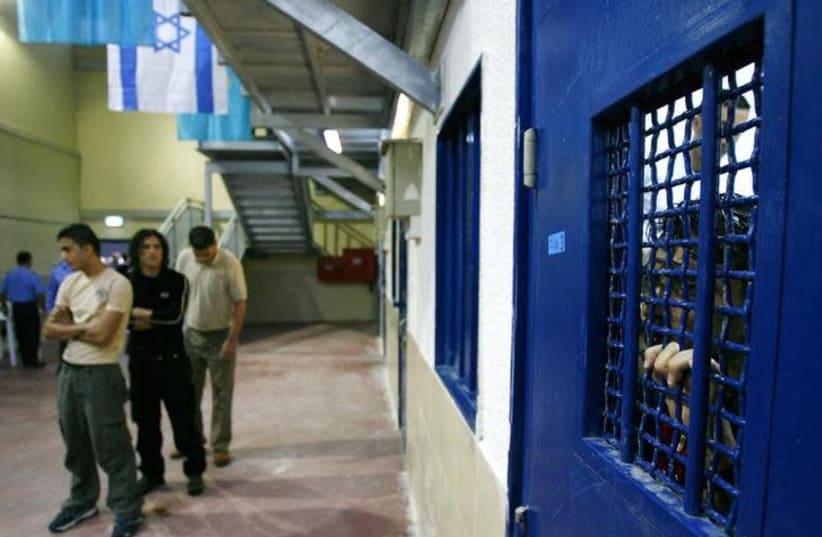All entrances and exits from the prison have been halted until all prisoners are tested and the prison is sanitized, the Israel Prison Service reported on Tuesday. All the infected prisoners are feeling well and most are without any symptoms.
Later on Tuesday, the Palestinian Prisoners Information Office claimed that the number of infected prisoners in the prison had risen to 81.
A source from Hamas told the Palestinian newspaper Al-Quds that the terrorist group is in constant contact with mediators in efforts to protect Palestinian prisoners. The source warned that Hamas has sent "serious threats" to Israel that it would not remain silent if prisoners are exposed to risk.
Concerning ongoing efforts to organize a prisoner exchange between Israel and Hamas, the source claimed that Israel is not showing "any real seriousness" on the issue, while Hamas is "fully prepared" to reach a deal.
The Hamas source told Al-Quds that while Israel was portraying positive attitudes concerning the issues of Palestinian prisoners and the ceasefire understandings, the situation on the ground was completely different. The source warned against neglecting or endangering the lives of Palestinian prisoners.Hamas spokesperson Hazem Qassem responded to the infections at Gilboa Prison as well on Tuesday, calling it "deliberate medical negligence."
The threats join a series of recent threats made by Gaza terrorists against Israel due to the deteriorating condition of Maher al-Akhras, a Palestinian who has been conducting a hunger strike in Israel for about 100 days, and the end of the time given by Hamas to fulfill the understandings reached in a ceasefire agreement in August.
During a visit by a Hamas delegation to Cairo last week, Egypt called on the terrorist group to maintain the ceasefire reached with Israel in August until after the US elections on Tuesday, according to the Lebanese newspaper Al-Akhbar.
The report added that the Egyptians stressed to Hamas that an escalation should not be pursued currently, insinuating to Hamas that Israel may consider returning to targeted assassinations against terrorist leaders if an escalation occurs.
A Hamas delegation left the Gaza Strip for Cairo last week to discuss bilateral relations, mutual interests, regional politics, the humanitarian situation in Gaza and developments between Gaza and Israel, among other topics.
While the Hamas delegation wanted Egypt to pressure Israel into implementing the understandings of the ceasefire, sources from Hamas told Al-Akhbar that Egypt's responses to the terrorist group's demands were "lackluster."
The Hamas delegation was informed that Israel had told Egypt that some of the requests, such as supplying natural gas to the Strip, would take years.
Explosive balloons were reported in southern Israel last week, as tensions rose between terrorist groups in the Gaza Strip and Israel surrounding a number of issues, including al-Akhras.
The Palestinian Islamic Jihad terrorist movement announced a general call-up of its forces last week, citing the deterioration in al-Akhras's condition as the reason.
